Detailed introduction of University of the Aegean:
Introduction and Overview
The University of the Aegean is one of the youngest universities in Greece. It is a multi-campus public university with a unique location on six Aegean islands: Lesvos, Chios, Samos, Rhodes, Syros and Lemnos. It currently has 5 colleges and 18 departments, offering undergraduate and postgraduate degree programs.
History and Founding Time
The University of the Aegean was founded on March 20, 1984. Its origins can be traced back to 1919, when there was a plan to create a new university in Greece to improve educational opportunities outside Athens. However, it was not realized due to the Greco-Turkish War from 1919 to 1922. Many years later, the University of the Aegean was created as a continuation of this initial vision.
School Strength
Faculty: In 2011, there were 292 teaching and research staff, including 55 professors, 70 associate professors, 128 assistant professors and 39 lecturers, in addition to 99 scientific teaching staff, 23 special laboratory teaching staff, 30 special technical laboratory teaching service staff and 304 administrative staff.
Academic Research: Actively carry out scientific research activities, and have achieved certain research results in the fields of marine science, environmental science, cultural technology and communication, participated in many international and domestic scientific research projects, and established extensive cooperative relations with other universities and research institutions.
International Cooperation: It is a member of the European University Association, a founding partner of the CREMO network, a member of the EMUNI Senate, and has participated in more than 210 bilateral and Erasmus academic agreements, with a strong international academic and research influence.
Institutional Nature
Public University.
Educational philosophy
Committed to introducing new methods of higher education through interdisciplinary subject areas to adapt to the needs of the contemporary world, promote the development of new scientific fields, improve the education system and curriculum settings to meet the needs of Greek society and global development, focus on cultivating students' comprehensive qualities and innovative abilities, so that students can better adapt to the needs of social and professional development.
Key laboratories and disciplines
Key laboratories: Advanced laboratories in the field of marine science provide good conditions for research on marine ecology, marine resources, etc.; Environmental science laboratories are equipped with modern instruments and equipment for research on environmental pollution, ecological protection and other issues.
Key disciplines: It has certain advantages and characteristics in the fields of computer science, marine science, cultural technology and communication. For example, computer science is in the 501-600 range in the 2025 THE World University Rankings, and physical sciences to which marine science belongs are in the 601-800 range in the rankings.
Faculty
The school has 5 colleges, namely the College of Humanities, the College of Science, the College of Business, the College of Social Sciences and the College of Environment. Each college has multiple departments. For example, the College of Social Sciences has the Department of Social Anthropology and History, the Department of Sociology, the Department of Cultural Technology and Communication, the Department of Geography, etc.; the College of Environment has the Department of Environment, the Department of Marine Sciences, the Department of Food Science and Nutrition, etc.
Ranking
2025 THE World University Rankings: in the 1001-1200 range.
2023 US World University Rankings: ranked 1022nd.
2025 European University Rankings - Southern Europe: ranked 126th.
Expenses
Tuition fees at Greek public universities are relatively low. Undergraduates generally pay about 1000-3000 euros per year for tuition and registration fees, etc., and master's tuition fees are around 2000-5000 euros/year. The specific fees may vary depending on the major.
Campus Environment
Unique geographical location: The campuses are located on the beautiful Aegean Islands, providing students with a beautiful learning and living environment, while also giving students the opportunity to gain in-depth understanding of local culture and history.
Complete facilities: The campus has modern teaching buildings, libraries, laboratories, restaurants, gyms, swimming pools, health examination centers and other facilities to meet students' learning and daily life needs. Each campus has its own unique architectural style and cultural atmosphere, providing students with a rich campus life experience.
-
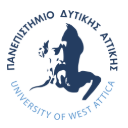
University of West Attica
-

Technical University of Crete
-

International Hellenic University
-
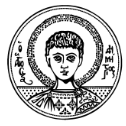
Aristotle University of Thessaloniki
-
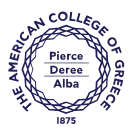
The American College of Greece
-
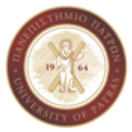
University of Patras
-

University of Ioannina
-

Democritus University of Thrace
-

Hellenic Open University
-
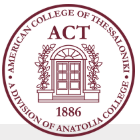
American College of Thessaloniki
-

Mesoamerican University
-

Istmo University
-

Mariano Galvez University of Guatemala
-

Regional University of Guatemala
-

Galileo University
-

Francisco Marroquín University
-

Rafael Landívar University
-

University of the Valley of Guatemala
-

University of San Carlos of Guatemala
-

Technological Institute of Tlaxcala Plateau
-

Golfo University
-

Technological University of South Sonora
-

Technological University of Huejotzingo
-

Tizimín Institute of Technology
-

Chilpancingo Institute of Technology

